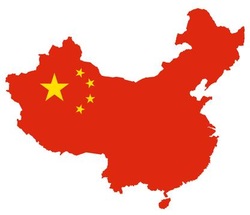"We have no time to look into the projects for which they are raising funds. As long as they have land or property as collateral, we give them the money."

The main borrowers from trust companies are those which have difficulty obtaining funding from banks and the bond market: local government financing vehicles with unprofitable projects, property developers, and firms in industries with large amounts excess capacity brought on by the previous lending boom, such as steelmakers and cement producers. Hardly an ideal concentration of risk in a lending portfolio.
At what point does this game of musical chairs end? And when it does, will it end badly? Defaults are already regularly occurring. Some of the defaults are the result of outright fraud. A large portion of trust loans extended over the past couple of years will mature this year.
The structure of mainland financial markets has changed recently with large amounts of new lending occurring outside the traditional banking system and instead via a shadow financial system of wealth management products and company-to-company loans, while the corporate bond market has taken off. This shadow lending system is so large now, that were the Chinese government to shut it down, the economy would collapse - that is how big this lending has become. A big problem is no one is really sure how big this shadow financing system has become, which means no one has a good idea what the risks really are.
Some trust products are outright ponzi schemes in the early years when the project invested in requires several years to get off the ground and generate returns. In such cases, later investors are used pay interest to earlier investors until the project generates cash flows. If these cash flows never happen, game over.
Sources:
(1) "The black hole that is wealth management products", South China Morning Post, February 14, 2013
http://www.scmp.com/business/banking-finance/article/1149718/black-hole-wealth-management-products
(2) "New dangers lurk in trust firms' rush to finance", South China Morning Post, February 18, 2013
http://www.scmp.com/business/banking-finance/article/1152695/new-dangers-lurk-trust-firms-rush-finance
(3) "Beijing can't afford to rein in the shadow financing system", South China Morning Post, January 24, 2013
http://www.scmp.com/business/article/1134686/beijing-cant-afford-rein-shadow-financing-system
CKB Solutions is all about real solutions for the real world. To learn how we can help your business, contact Greg Kovacic in Hong Kong.


 RSS Feed
RSS Feed
